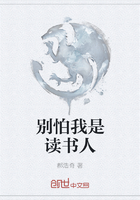How to Find Time to Read
路易斯·绍尔斯 / Louis Shores
If you are an average reader you can read all average book at the rate of 300 words a minute. You cannot maintain that average; however, unless you read regularly every day. Nor can you attain that speed with hard books in science, mathematics, agriculture, business, or any subject that is new or unfamiliar to you. The chances are you will never attempt that speed with poetry or want to race through some passages in fiction over which you wish to linger. But for most novels, biographies, and books about travel, hobbies or personal interests, if you are an average reader you should have no trouble at all absorbing meaning and pleasure out of 300 printed words every 60 seconds.
Statistics are not always practicable, but consider these: If the average reader can read 300 words a minute of average reading, then in 15 minutes he can read 4,500 words. Multiplied by 7, the days of the week, the product is 31,500. Another multiplication by 4, the weeks of the month, makes 126,000. And final multiplication by 12, the months of the total number of words of average reading an average reader can do in just 15 minutes a day for one year.
Books vary in length from 60,000 to 100,000 words. The average is about 75,000 words. In one year of average reading by an average reader for 15 minutes a day, 20 books will be read. That’s a lot of books. It is 4 times the number of books read by public-library borrowers in America. And yet it is easily possible.
One of the greatest of all modern physicians was Sir William Osler. He taught at the Johns Hopkins Medical School. He finished his teaching days at McGil University. Many of the outstanding physicians today were his students. Nearly all of the practicing doctors of today were brought up on his medical textbooks. Among his many remarkable contributions to medicine are his unpublished notes on how people die.
His greatness is attributed by his biographers and critics not alone to his profound medical knowledge and insight but to his broad general education, for he was a very cultured man. He was interested in what men have done and thought throughout the ages. And he knew that the only way to find out what the best experiences of the race had been was to read what people had written. But Osler’s problem was the same as everyone else’s, only more so. He was a busy physician, a teacher of physicians, and a medical-research specialist. There was no time in a 24-hour day that did not rightly belong to one of these three occupations, except the few hours for sleep, meals, and bodily functions.
Osler arrived at his solution early. He would read the last 15 minutes before he went to sleep. If bedtime was set for 11:00 P.M., he read from 11:00 P.M. to 11:15 P.M. If research kept him up to 2:00 A.M. he read from 2:00 A.M. to 2:15 AM. Over a very long lifetime, Osler never broke the rule once he had established it. We have evidence that after a while he simply could not fall asleep until he had done his 15 minutes of reading.
In his lifetime, Osler read a significant library of books. Just do a mental calculation for half a century of 15-minute reading periods daily and see how many books you get. Consider what a range of interests and variety of subjects are possible in one lifetime. Osler read widely outside of his medical specialty. Indeed, he developed from this 15-minute reading habit an avocational specialty to balance his vocational specialization. Among scholars in English literature, Osler is known as an authority on Sir Thomas Browne, seventeenth century English prose master and Osler’s library on Sir Thomas is considered one of the best anywhere. A great many more things could be said about Osler’s contribution to medical research, to the reform of medical teaching, to the introduction of modern clinical methods. But the important point for us here is that he answered supremely well for himself the question all of us who live a busy life must answer: How can I find time to read?
The answer may not be the last 15 minutes before I go to sleep. It may be 15 minutes a day at some other time. In the busiest of calendars there is probably more than one 15-minute period tucked away somewhere still unassigned. I’ve seen some curious solutions to the problem of finding time for reading.
During army days in the last year of the Second World War, I discovered a PFC in my squadron who seemed unusually well read. I found in his 201 file a remarkable civilian and military biography. His four years of service included two overseas, all meritorious but without heroics. Had all of his recommendations for promotion gone through he would have had not only his commission, but probably the rank of captain. But here he was, still a private first-class—because despite the military emphasis on education, efficiency, loyalty, and all other criteria for determining promotion, accident plays a most important part. Every time this PFC had been recommended for promotion, except once, he had been transferred or come up against tables of organization limitations, or a new change in regulations, or a superior officer who had filled out the forms incorrectly or forgotten them in his third right-hand drawer. And so he had remained a PFC, and had taken his reward in reading. The amount he did in the army was prodigious.















